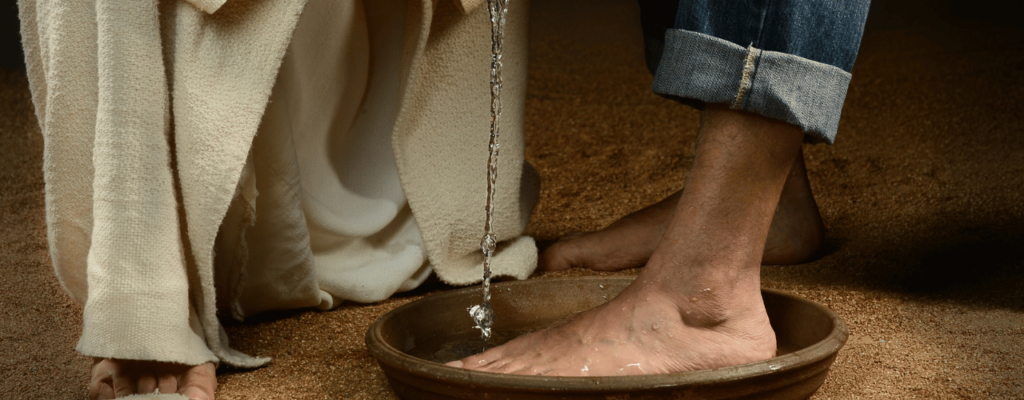Calling Volunteer Feet

It’s that time of year when parishioners scatter like startled sheep. The call goes out for volunteers to have their feet washed on Holy Thursday, and suddenly, we’re armed with a thousand excuses.
We get it – our knobbly, stinky feet aren’t exactly our best feature. The idea of baring them in public, especially to our parish priest, is mortifying.
A trip to the nail salon is different. It’s transactional – pay the fee, walk out with polished toes, no vulnerability required. But when our priest kneels to wash our feet during the solemn liturgy of Holy Thursday? That’s a whole other story.
Yet within this awkward invitation lies a deeper summons – to receive God’s servant love. That’s the heart of the ceremony: Jesus, the Son of God, stooping to wash the dusty, calloused feet of His disciples.
Peter balked at first, just like us. “You will never wash my feet,” he protested (Jn 13:8). But Jesus insisted, “If I do not wash you, you have no part in me.” Ever the enthusiast, Peter then swung to the opposite extreme, begging for a full immersion!
The shoe is on the other foot
Years ago, we found ourselves on the other side of this ritual, tasked with organizing the Easter liturgies (we could say, the shoe was on the other foot!). Recruiting ‘volunteer feet’ was an ordeal that sparked some soul-searching.
We’d always attributed our reluctance to modesty or a concern for the dignity of the priest. But truthfully? – something uglier lurked beneath: pride.
St. Augustine describes pride as “the creature’s refusal to submit to God”. There we were, more worried about projecting a polished, sinless image to our priest than offering our real, messy selves.
How Satan, the prince of pride, must despise this moment in the liturgy! Our priests – flawed and human like us – kneel in humility, serving the very people they shepherd, and over whom they have spiritual authority.
In imitating Christ, our priests remind us (and themselves) that spiritual leadership isn’t about power – it’s about laying down one’s life. It’s a liturgical ‘ego smackdown’; a gesture so anointed it never fails to move us.
Foot washing weddings
Which brings us to marriage and the use of foot-washing ceremonies in some Christian weddings. Although it’s not part of the Catholic Rite of Marriage it is permitted as an additional ritual with approval, or at the reception.
As bride and groom take turns washing each other’s feet, it’s a public witness of their vow to serve, not just on their wedding day, but every day.
Paired with St. Paul’s words to the Ephesians (5:21-33), it echoes Christ’s love for the Church: “Husbands, love your wives, just as Christ loved the church and gave himself up for her, to make her holy by cleansing her with the washing of water by the word” (Eph 5:25-26). Paul ties it all together, calling this mutual submission “a great mystery” that reflects Christ and His Church (Eph 5:32).
Consider this detail: in ancient Jewish tradition, a bridegroom wore a seamless tunic. John’s Gospel notes that Jesus wore one too – so valuable the soldiers cast lots for it (Jn 19:23). Picture Jesus at the Last Supper, dressed as a bridegroom, washing His disciples’ feet, then offering His body and blood.
On Holy Thursday, our priest steps into that role, washing our feet as Christ washes His bride, the Church. And it’s not a once-a-year act – every time we participate in the Sacrament of Reconciliation, we are spiritually cleansed and made ‘spotless’ through absolution of our sins.
As husband and wives, we are called to serve and forgive in imitation of Christ’s unconditional love and infinite mercy. Holy week, with the symbolism of foot washing and the call to Reconciliation, is time to reflect more deeply on this.
And when our ‘bridegroom’ (aka priest) wants to wash us clean, be it our feet on Holy Thursday or our souls on every other day, let’s not resist the invitation. It is Jesus, our eternal bridegroom, who beckons us.




